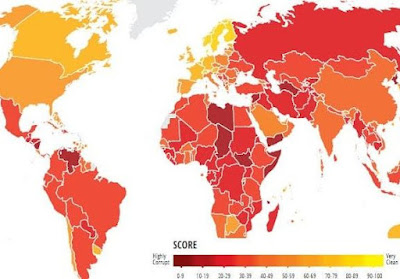Cloud technology refers to delivering computing services—including servers, storage, databases, networking, software, analytics, and intelligence—over the Internet (“the cloud”) to offer faster innovation, flexible resources, and economies of scale. Cloud computing has become one of the go-to features for businesses to skilfully make use of data management, data storage, and computing power automatically. The system should be capable of adapting to newer developments as well as steady elements. As for the career scope, there is a high demand for professionals in cloud computing as many organizations are adopting cloud technology. Career opportunities include Cloud Solutions Architect, Cloud Developer, Cloud Security Engineer, Cloud Network Engineer, Cloud Database Administrator, and Cloud DevOps Engineer. These roles offer competitive salaries and good job prospects.

Cloud Architect
A cloud architect is a professional responsible for designing, planning, and managing an organization’s cloud computing strategy. They oversee the deployment and ongoing maintenance of applications, data, and infrastructure in the cloud. The role includes evaluating cloud service providers, determining requirements for cloud migrations, and ensuring the security and compliance of cloud solutions.
Cloud Developer
A cloud developer is a software developer who focuses on creating, designing and managing applications and services for cloud computing platforms. They are responsible for developing and deploying applications on cloud infrastructure and ensuring that the cloud-based systems are secure, scalable and efficient. The role may also include troubleshooting and maintaining the cloud systems.
Cloud Security Engineer
A Cloud Security Engineer is responsible for designing, implementing, and managing security measures for an organization’s cloud computing infrastructure. This includes ensuring the confidentiality, integrity, and availability of sensitive data and systems in the cloud. Key responsibilities include:
1. Implementing security controls and technologies such as firewalls, encryption, and identity and access management.
2. Monitoring security events and responding to security incidents.
3. Conduct regular security assessments and risk analyses.
4. Staying up to date with the latest security threats and trends.
5. Collaborating with cross-functional teams to ensure compliance with security policies and regulations.
Cloud Network Engineer
A Cloud Network Engineer is responsible for designing, implementing, and maintaining network infrastructure for cloud computing environments. They ensure high availability and security of the network while optimizing performance and cost-effectiveness. Their tasks include configuring cloud networking services, implementing network security measures, and monitoring network performance. They work with cloud providers such as Amazon Web Services (AWS), Microsoft Azure, and Google Cloud Platform (GCP).
Cloud Database Administrator
A cloud database administrator is responsible for managing, maintaining, and securing databases that are hosted on a cloud computing platform (e.g. AWS, Azure, Google Cloud). They perform tasks such as setting up and configuring databases, monitoring performance, tuning and optimizing performance, securing data and performing backups and disaster recovery. Additionally, they may be responsible for migrating existing databases to the cloud, ensuring data integrity and availability, and implementing access controls and security policies.
Cloud DevOps Engineer
A cloud DevOps Engineer is a software professional who combines the skills of a software developer with the knowledge of operations. They focus on automating and streamlining software delivery processes to optimize the development, deployment, and operation of applications on cloud platforms (e.g. AWS, Azure, Google Cloud). They work with teams to design and implement continuous integration, continuous deployment (CI/CD) pipelines, and other automation tools to ensure high-quality, reliable, and efficient software delivery. Additionally, they may also be involved in designing and maintaining cloud infrastructure, monitoring and resolving production issues, and collaborating with development teams to continuously improve the overall software delivery process.
The Scope of Cloud Technology in Pakistan
The Pakistani IT industry has shown steady progress and a fast-paced acceptance of enterprise cloud systems. With Google Cloud coming to Pakistan, Pakistan has become one of the promising and globally recognized growing Information Technology economies. The demand for cloud services is increasing day by day. From the telecom, banking, manufacturing, logistics, and manufacturing sectors, even SMEs have started to adopt cloud-based applications, and the demand for cloud-based applications & platforms has been on trend. Pakistan Telecommunication Company Limited (PTCL) has joined hands with Dell Technologies to introduce Azure Cloud Computing services in Pakistan. The Azure Stack Hub is an extension of Microsoft Azure and allows PTCL users to get access to Azure services with or without the availability of the internet. REDtone Digital Services (RDS) has become a part of the Google Cloud Partner Advantage program and wishes to extend its services to include Google Cloud certification sales, pre-sales, and support. Mahnoor Nadeem, CEO of RDS, said that Pakistan has become the ultimate hub of the digital revolution and many organisations are eager to enter the Pakistani market. SAP plans to increase its efforts to provide better online security for its clients, highlighting safety as one of the persistent issues organisations face in an online world. The scope of cloud technology in Pakistan is rapidly growing as more businesses and organisations adopt cloud computing solutions to improve efficiency and reduce costs. The areas of growth include:
1. Cloud storage and data management.
2. Cloud computing for SMEs and startups.
3. Government agencies and e-governance initiatives.
4. Healthcare and education sectors.
5. IT outsourcing and managed services.
However, there is still a significant gap in cloud technology adoption in Pakistan compared to developed countries, but with increasing investment and awareness, the growth potential is high.
*PC: Google Images









2 Comments